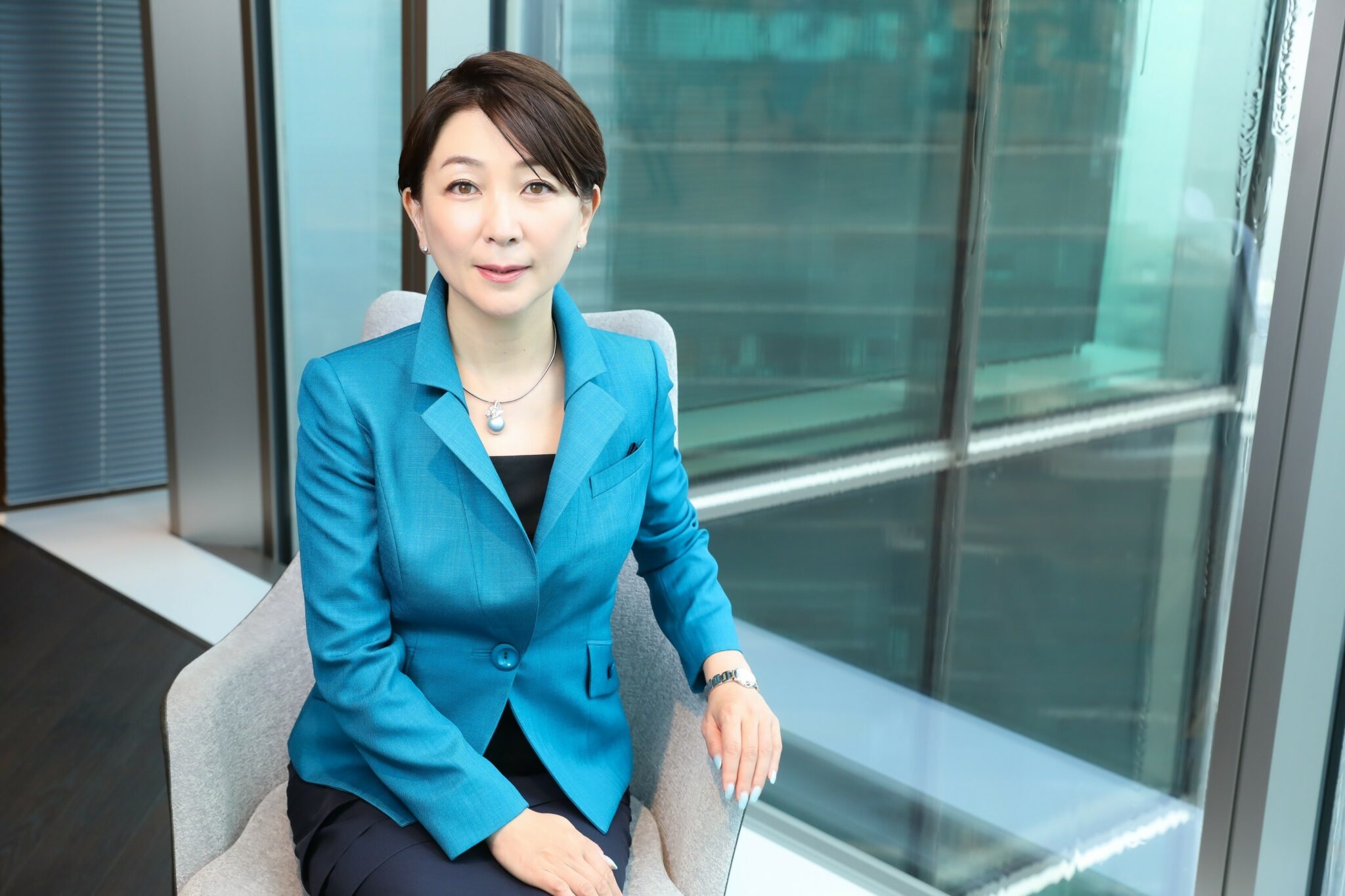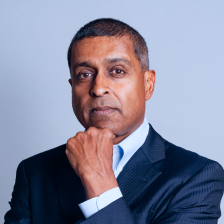Wanted in Japan: Outsiders, Boomerangs and Authentic Selves-How a Marketer Turned Chief People Officer is Inspiring Culture Change at Japanese Mega Bank Mizuho

I had the opportunity to interview Natsumi Akita, Chief People Officer at Japanese mega bank Mizuho. Natsumi is truly a one-of-a-kind leader. A University of Tokyo graduate with an MBA in marketing from Northwestern, Natsumi has brought a global perspective to her marketing leadership at major financial institutions operating in Japan, including HSBC, Citi and RBS, as well as Mastercard. She also did a stint at Adobe, which is where we met.
Moving to an HR role at Mizuho, Natsumi is wielding her marketing skills to engage employees and transform the culture at one of Japan’s largest banks. In the interview, we discuss the impact of millennials and Gen Zers on Japan’s lifetime employment system, the need to rebuild Japan’s human capital and the progressive initiatives she’s leading at Mizuho.
The takeaway: traditional Japanese companies are making a genuine effort to become more open and agile﹣and passionate, globally-minded leaders like Natsumi are key to driving their transformation forward.
The interview has been edited for clarity.
Yasu: You’ve been a marketer your entire career. Why the switch to HR at Mizuho?
Natsumi: I’m asked that question a lot, but I think a marketing mindset is more important than ever in HR, whether globally or in Japan, for a couple of reasons. First of all, the pandemic and remote work have compelled all of us, but especially millennial and Gen Zers, to rethink how and why we work. We value our time and freedom more. I know I am preaching to the choir here, but this global trend applies to Japan as well.
Secondly, as many of your readers may know, a unique feature of Japanese industry is its lifetime employment system whereby companies recruit candidates straight out of college and offer them lifetime job security in exchange for their loyalty. This system is on the cusp of changing, albeit gradually.
Increasingly, millennials and Gen Zers don’t feel they have to commit to one company for a lifetime. Companies, for their part, want people who are less dependent on their employers for their career development. Companies want to develop and retain people who can think on their own and act independently.
In short, the current system isn’t working for either workers or their employers.
This is transforming the HR function in Japan. HR can’t be just about managing employees as a collective of like-minded people. It has to focus more on understanding the needs and wants and growth path of workers as individuals. Personalized engagement and communication are essential, just as marketers seek to engage customers. Delivering a compelling employee experience is key. There are global companies that have even merged parts of their HR and marketing functions.
So these changes in HR practices that are happening globally are occurring in Japan as well, but in a more dramatic way given the existence of lifetime employment. This is why, I think, a marketer like me was of interest to Mizuho. I see my career progression from marketing to HR as perfectly natural and consistent with the changes happening within Japanese society as a whole.
Opening Up
Yasu: From an HR standpoint, what changes are essential for the success of large, traditional Japanese companies like Mizuho.
Natsumi: Diversity and inclusion are of course very important, but if there are stages to DEI, Japanese companies are at a very early stage, though we are making progress for sure, especially in the empowerment of women.
We also need to keep in mind, however, that Japanese companies still have a lot of work to do accommodating mid-career recruits who are not a part of the inner circle of lifetime employees, who do not have their internal connections or necessarily share their corporate values. In the past, these individuals tended to be treated as outsiders. This is no longer viable.
At Mizuho we’re proactively hiring mid-career professionals who can introduce new ideas and ways of working into the company. We have people joining our senior ranks, myself included, from companies like IBM and Deloitte. We’re also recruiting more junior people from outside the company for front-line positions as well.
Welcoming mid-career professionals is a form of inclusion too. It’s proof that we’re embracing diversity of opinion and that we’re serious about change.
Boomerangs Welcome!
Yasu: Could you give me other examples of changes that are happening at Mizuho?
Natsumi: An initiative I like talking about is our alumni network. In the past, employees who left Mizuho found it difficult to return to the company. They were viewed as defectors, if you will. This was the case at most Japanese companies.
But Mizuho’s HR team was very early in creating an alumni network. We invite notable alumni to speak at our events to share their experiences and learnings with other alumni as well as Mizuho employees.
There are even alumni who are so-called “boomerangs,” that is, people who’ve returned to Mizuho after leaving once. Boomerangs are welcome at Mizuho. In addition to enriching our culture with new ideas and perspectives, they serve as evidence that Mizuho is a great place to work.
Yasu: Are other Japanese companies in other industries, say, in manufacturing, interested in pursuing these initiatives as well?
Natsumi: I believe so. I often speak at public events and get inquiries from various companies about our HR initiatives and how to implement them. Again, I think this shows that Japanese companies are open to new ideas and people. Their desire to change is genuine.
Aligned on Reskilling
Yasu: I’d like to take a step back and ask about your vision for culture change at Mizuho. What is your overall strategy for transforming the culture of the company?
Natsumi: There’s no question that Japanese companies are in the midst of rebuilding their human capital. Companies now realize that people who’ve been at one company since college have a hard time succeeding at other firms. Companies and employees are aligned on the need for education and reskilling.
Mizuho increased its investment in training and development by 50 percent in 2022, and we plan to increase it further. We want employees to pursue challenges and acquire new skills in a forward-looking way. We want them to build on their unique strengths and express their individuality. We want to create an environment where people can be their authentic selves.
For example, since 2019, Mizuho employees have been able to take on additional roles or side jobs within and outside the company. Mizuho was very early to implement this initiative, and it’s proven extremely popular, with approximately 540 employees taking advantage of this opportunity in 2022, compared with 120 in 2019. We even have employees who have started and sold their own business while remaining employees of Mizuho. Employees can also take three or four days off a week if they so choose. Again, we want our employees to seek stimulation doing other work and then share their learnings with their colleagues at Mizuho.
Restoring Public Trust
Yasu: Have you made any surprising discoveries since you’ve been at Mizuho? Do you have any stories that you could share?
Natsumi: Many people don’t appreciate newcomers who talk about how they did things at their previous companies. This generally hasn’t been the case at Mizuho. I’ve had quite a few of my colleagues ask me about what the corporate culture was like at the global companies I worked for. They may not agree with me or adopt everything I say but they want to learn. There’s a hunger for new knowledge that’s incredibly refreshing.
Yasu: Are your colleagues being sincere when they say they need to change? Or are they just being respectful?
Natsumi: I think the desire to change is real. As you know, Mizuho has experienced multiple service outages over the past couple of years, impacting public trust in the bank, at least domestically. This has served as an impetus for change. There’s an awareness that business as usual is no longer viable.
Hyper-personalized Engagement
Yasu: What kinds of digital solutions do you use to drive culture change?
Natsumi: This is an area that we are working on as we speak. Currently we use internal collaboration tools that help employees to get to know each other, not just functionally but personally as well. We use a lot of video. We bring our alumni together on a social platform as well.
We’re learning a lot from Google. We’ve partnered with them to develop a hyper-personalization solution to engage customers, but which can also be deployed to engage our employees. Our senior executives also visit Google campuses and we in turn invite their executives to Japan.
Host an Offsite, Invite Customers
Yasu: Finally, what should global executives keep in mind when trying to engage Japanese firms?
Natsumi: What’s great about Japanese companies is that, although they may take time to engage in a partnership, once they commit, they will do their best to make that partnership succeed. They tend to commit long-term and rarely break promises.
So I think it’s well worth their while for executives based outside of Japan to invest in relationship-building with Japanese companies, to spend time on overcoming linguistic and cultural differences. They should meet in person, not over video.
Now that Covid is relatively under control, I would recommend that global executives visit Japan and spend quality time with their Japanese customers and partners. Inviting them to an offsite outside of Tokyo may be the way to go.
I’m pretty sure they’ll be pleased with the progress they make.




